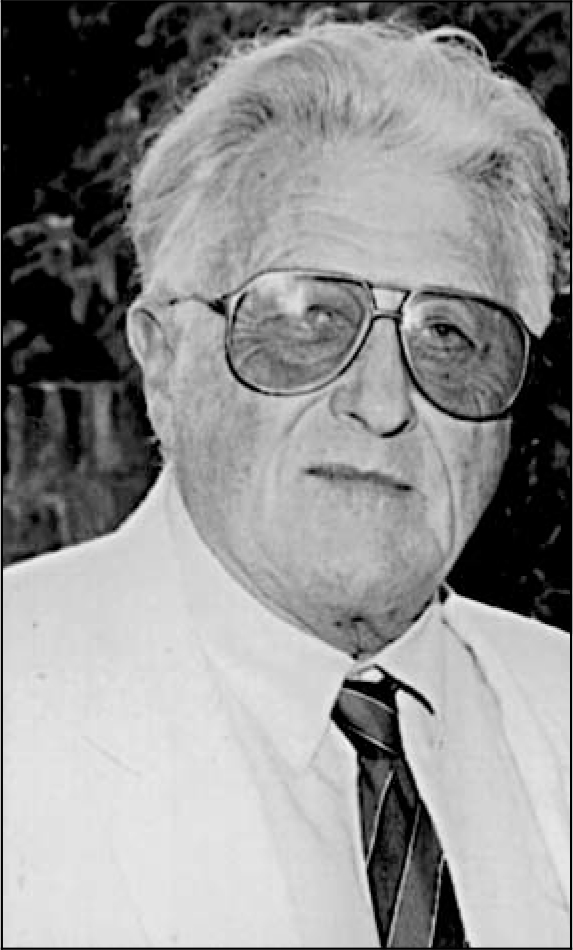
Dr Davys was born in 1922 in Urchfont, Wiltshire, where his father, Revd Canon S. M. D. Davys, was the vicar of St Michael's Church from 1915 to 1929. Davys was educated at Salisbury Cathedral School, then Marlborough College. In 1940, he went up to St Edmund Hall, Oxford, to read Medicine, qualifying in 1946, and continued his medical training at Guy's Hospital.
In May 1945, as one of the more senior medical students, he went to Belsen to help with the massive medical problems as concentration camps were liberated. The death rate, which had been 4% per day until 1 May, fell in 1 week to half the total and by 22 May had been reduced to 50 per day. His letter home describes ‘scenes of indescribable horror, filth, squalor and disease… they have been dying of starvation and typhus at about the rate of 500-600 a day… I am very tired. We work a very hard 12-hour day. The scenes I have seen here will be vivid memories for the rest of my life’.
From 1950 to 1970, Davys served in the Royal Naval Volunteer Reserve, attached to HMS President. He achieved the rank of Surgeon Lieutenant Commander and was awarded the VRD, the Royal Naval Volunteer Reserve Officers' Decoration. After leaving the Navy, he returned to Guy's, qualifying as a consultant physician and psychiatrist in 1953. He remained attached to Guy's Hospital under Sir Arthur Fripp as Research Fellow in Psychiatry. He was also ward clerk and part-time resident medical officer under Dr Macdonald Critchley and Dr Meadows at the National Hospital for Nervous Diseases, Queen Square.
Upon qualifying, Davys worked mainly in the NHS as consultant psychiatrist for the East Sussex Regional Board's Child Guidance Clinic in Brighton. He had a special interest in depression in children.
In 1964, Davys left the NHS and established Bowden House, a private psychiatric clinic in Harrow-on-the-Hill, where he was Consultant Psychiatrist and Joint Medical Director until 1974. In 1966, he was elected Corresponding Fellow of the American Psychiatric Association, in recognition of meritorious contributions to psychiatry, and became an International Fellow in 2002. The US Government engaged him as a panel psychiatrist to vet visa applications, and he was also a member of the Anglo-American Medical Society.
A keen skier since the early 1960s, firstly in St Moritz and then regularly in Zermatt, he was a member of the Kandahar, Downhill Only and Ski Club of Great Britain. Indeed, he became something of a local hero in Zermatt when, in 1964, his swift action in accessing vaccine during a typhoid epidemic saved the town from disaster. He introduced many friends, entertainers and patients to the mountains, and was skiing elegantly even last February, although no longer able to repeat his ascent of the Mont Rosa on skins!
He died of complications following cardiac surgery in Brighton on 12 June 2002, aged 80. His marriage to Clarissa Merton ended in divorce in 1963. Thereafter, he lived happily with his partner, Penny Buckland, who survives him. There are no children.



eLetters
No eLetters have been published for this article.